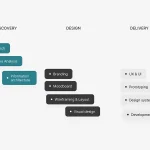
Financial difficulties or having trouble making their monthly debt payments typically require cutting expenses and/or increasing income in order to gain financial relief. This might involve eliminating nonessential costs, pausing or cancelling recurring charges that can be reduced, or taking advantage of debt relief programs offered by creditors.
Reaching out to a non-profit credit counselling agency and consulting with professionally trained credit/debt counselors could also be of great benefit.
1. Get Organized
Organising your finances, whether paper bills and receipts in folders or electronic files on a computer, is key to financial security. Gather all debt statements together, listing creditors, amounts owed, monthly payments and interest rates so you have an accurate picture of where you stand financially. Understanding why and how you got into debt will not only help prevent further mistakes from being made in future; it may also give you new solutions for clearing off existing debt more rapidly.
Compare expenses to income. Search for opportunities to reduce unnecessary spending such as dining out or retail shopping. If possible, find ways to increase income; this could include anything from picking up side hustles like freelancing or picking up extra shifts at work to applying for higher-paying positions. Also make sure that if you’re still paying off debt that three to six months of expenses have been saved as emergency savings in case an unexpected expense or crisis arises.
2. Talk to Your Lender
Debt can be an immense source of strain and worry. Knowing exactly what debts you owe and the amount that is owed allows you to devise an affordable payment plan.
Lenders are usually open to discussing your situation and finding a mutually-beneficial solution, while credit counselors are trained professionals who can provide help managing finances and getting back on track with creditors. Reaching out can give hope, as they guide through negotiations process with creditors.
At the same time, it’s also essential to keep emergency savings intact when paying down debt. Professionals recommend saving at least three to six months’ expenses so you’re prepared in case unexpected financial emergencies arise. Writing goals into a budget increases your likelihood of meeting them by 42%; alternatively consider using debt snowball or avalanche strategies as ways of fast-tracking the process of eliminating your debt faster.
3. Make a Plan for the Future
An effective plan for the future can make overcoming debt and financial hardships simpler, such as setting long-term goals that you review frequently to stay focused and on track. Setting these goals may involve setting short-term, medium-term, or even lifetime objectives that keep you on the right track. Writing them down and reviewing them often will keep you focused and on track with your plans for the future.
If you have an excessive amount of debt, your priority should be clearing it away first. This could involve using the debt snowball method to pay down credit card balances faster, creating an emergency savings account or applying for mortgage refinancing.
Once a month, try saving at least some money, even if it is just $10-20. Automatic withdrawals from your paycheck could also help save for specific goals like vacation costs or goals such as starting an emergency fund. Saving and building wealth together are excellent practices!
4. Stay Positive
Financial crises can be paralyzing, yet it’s essential that we remain positive during times of distress. Even if you can’t sleep or become anxious when looking at credit card balances, overcoming them and creating a new future is possible. Step one should be to gain clarity regarding your finances by consulting a dependable advisor or credit counselor.
Once you have an effective plan in place for paying off debt, maintain an optimistic mindset by reading motivational books or listening to inspiring podcasts or music – as well as engaging in activities that make you happy!
Most creditors – particularly mortgage lenders, banks and credit card issuers – offer hardship concessions that include lower interest rates or reduced fees and penalties. By reaching out to these entities directly, it’s easy to see what your options are; at the same time, remembering that experiencing financial difficulty doesn’t signify personal failure and families often bond even closer during trying times can only strengthen bonds further.







